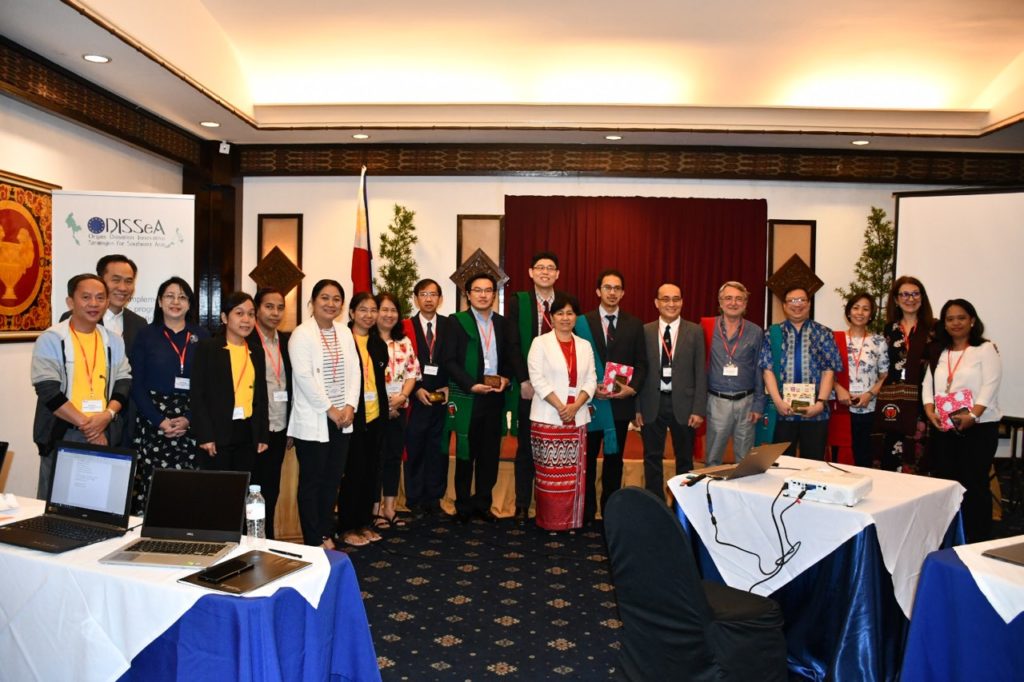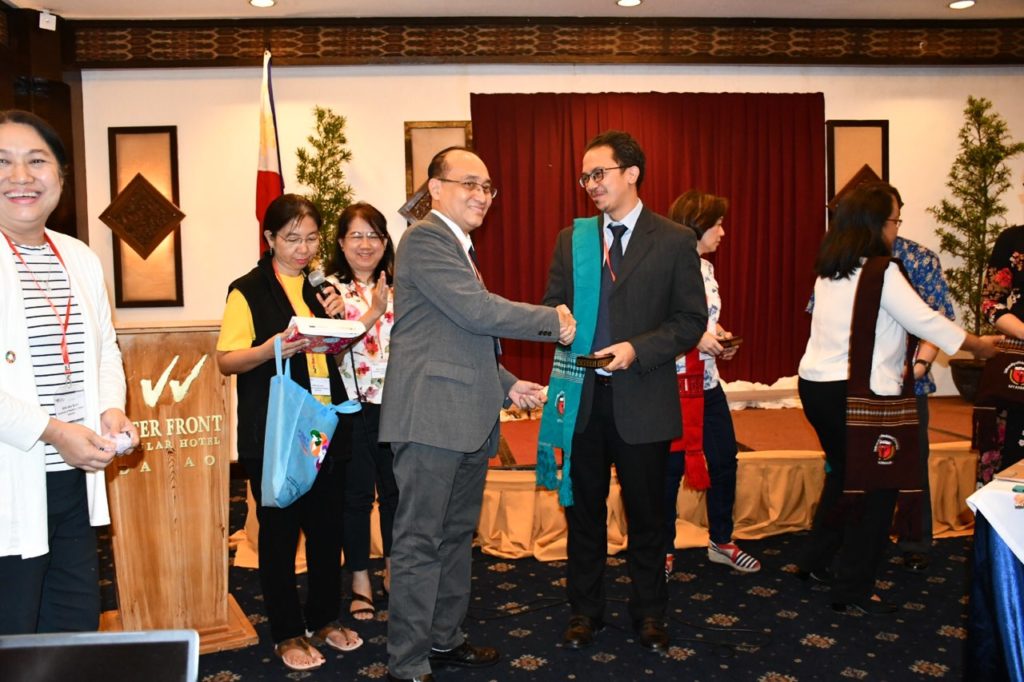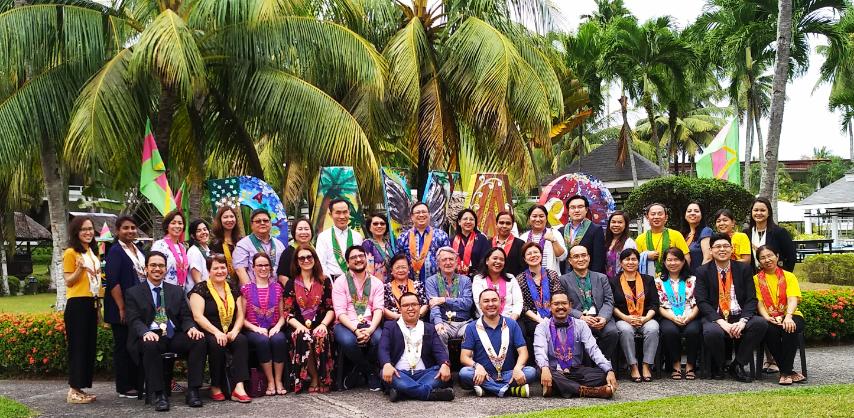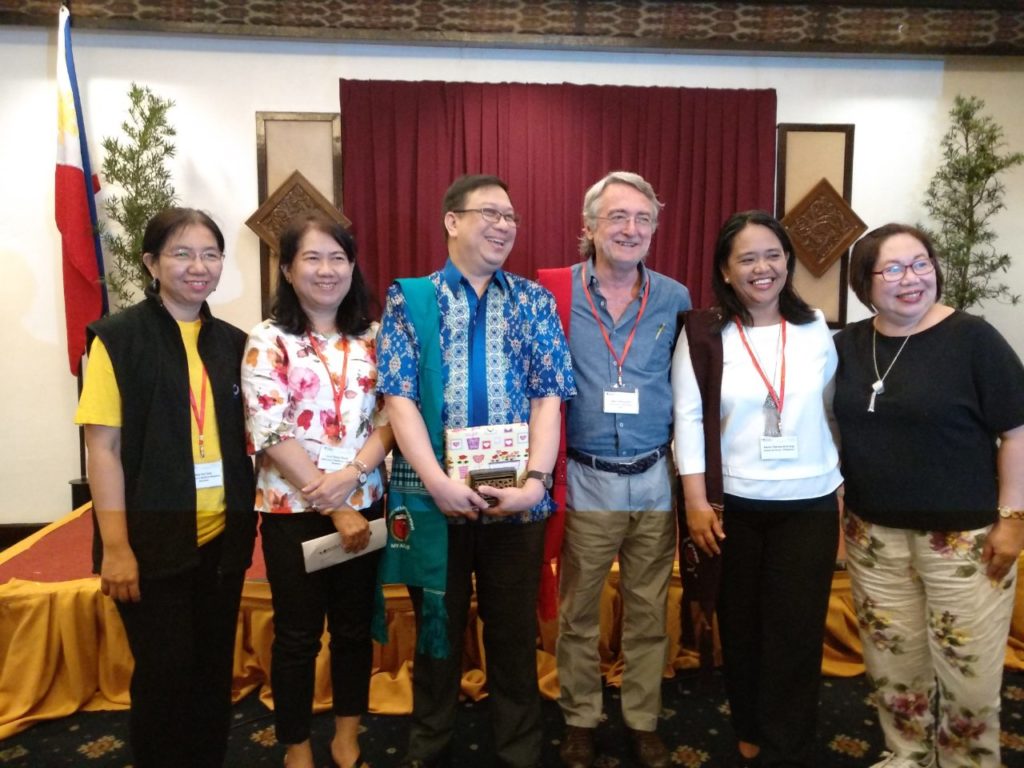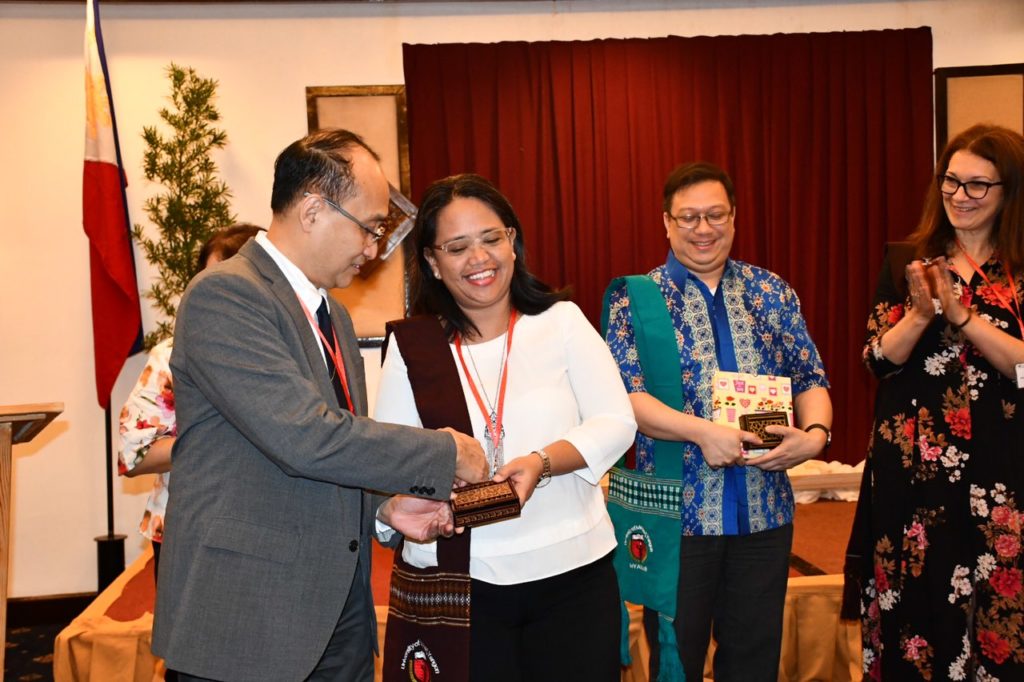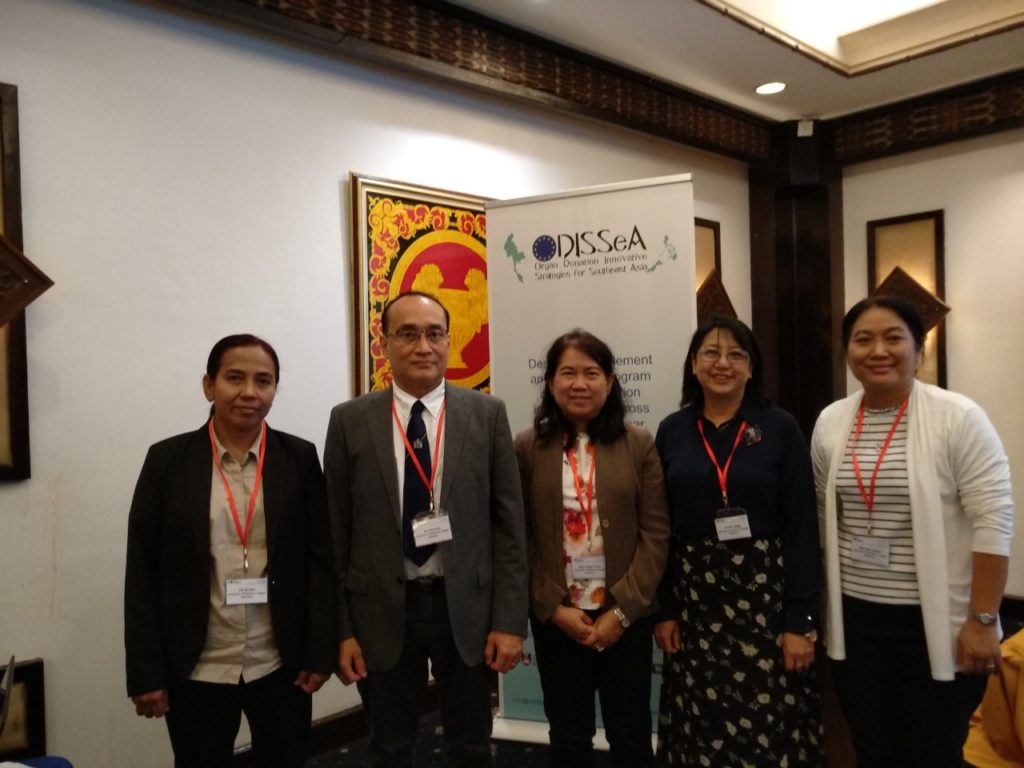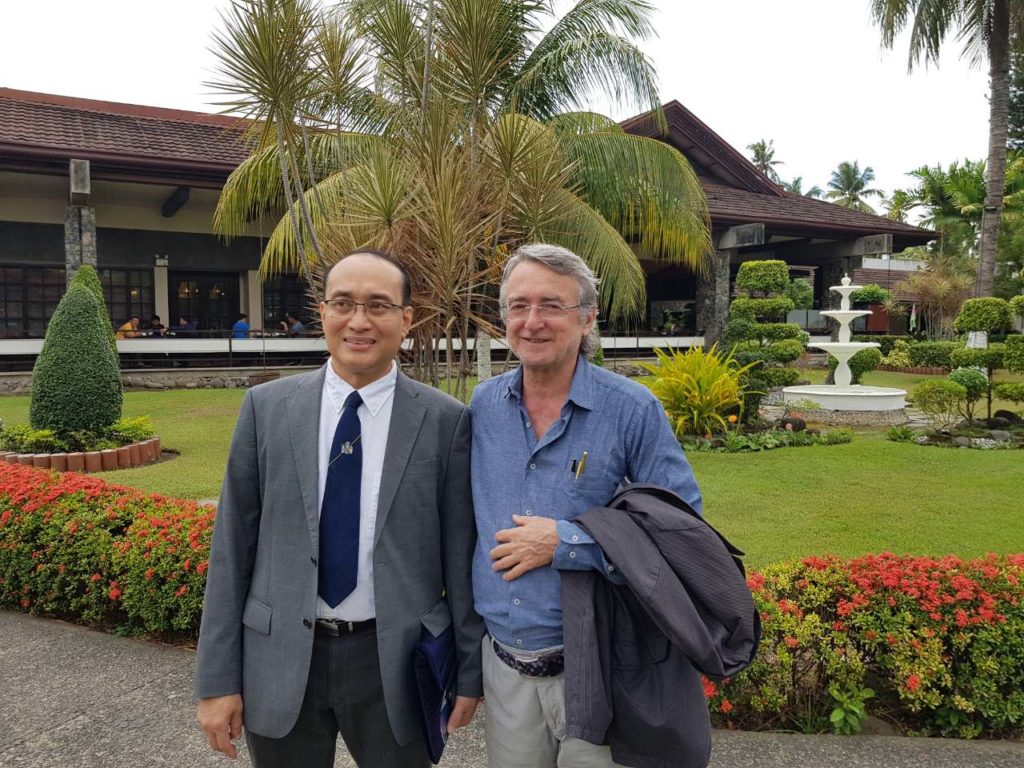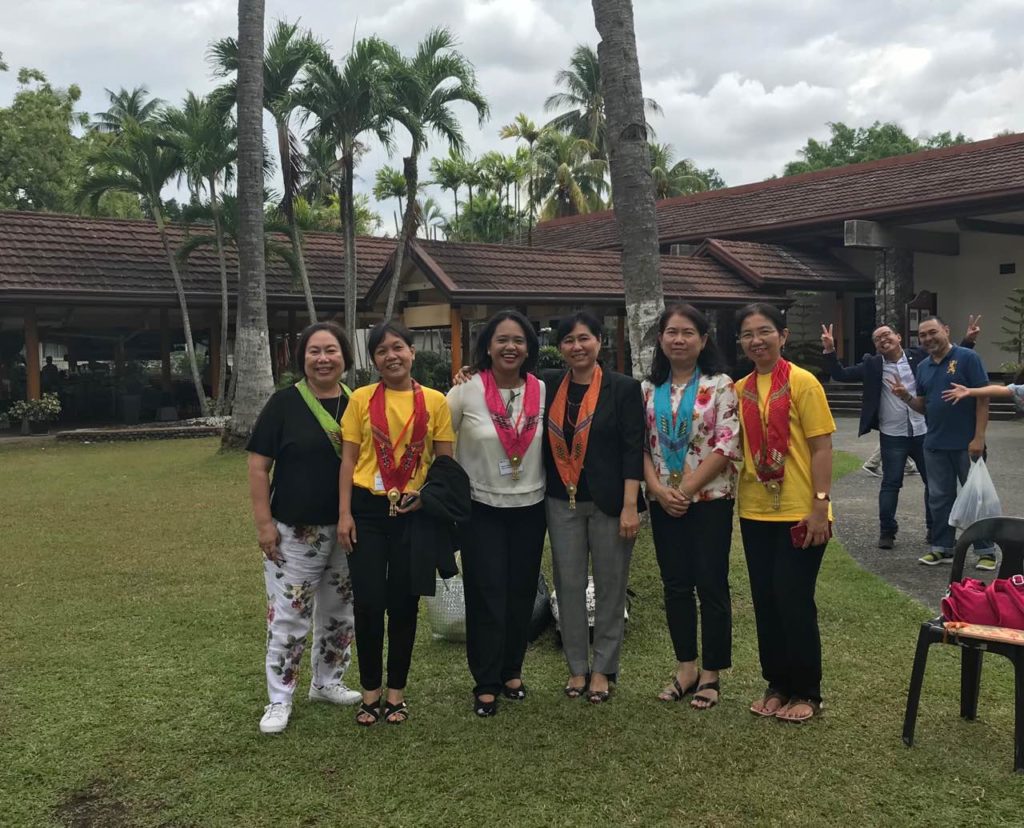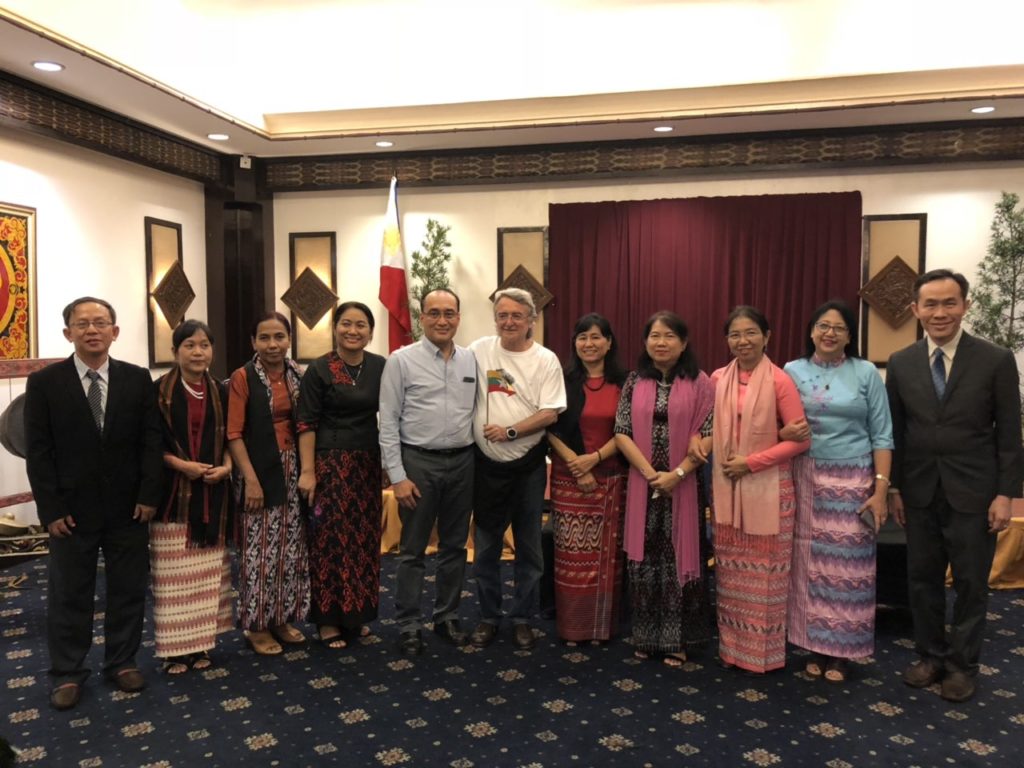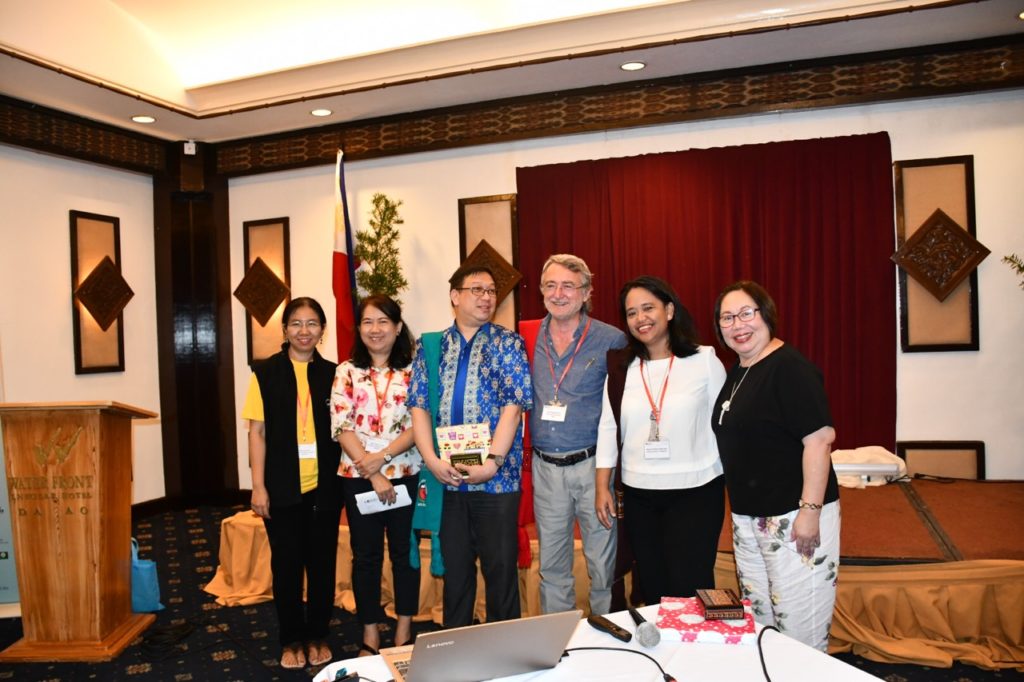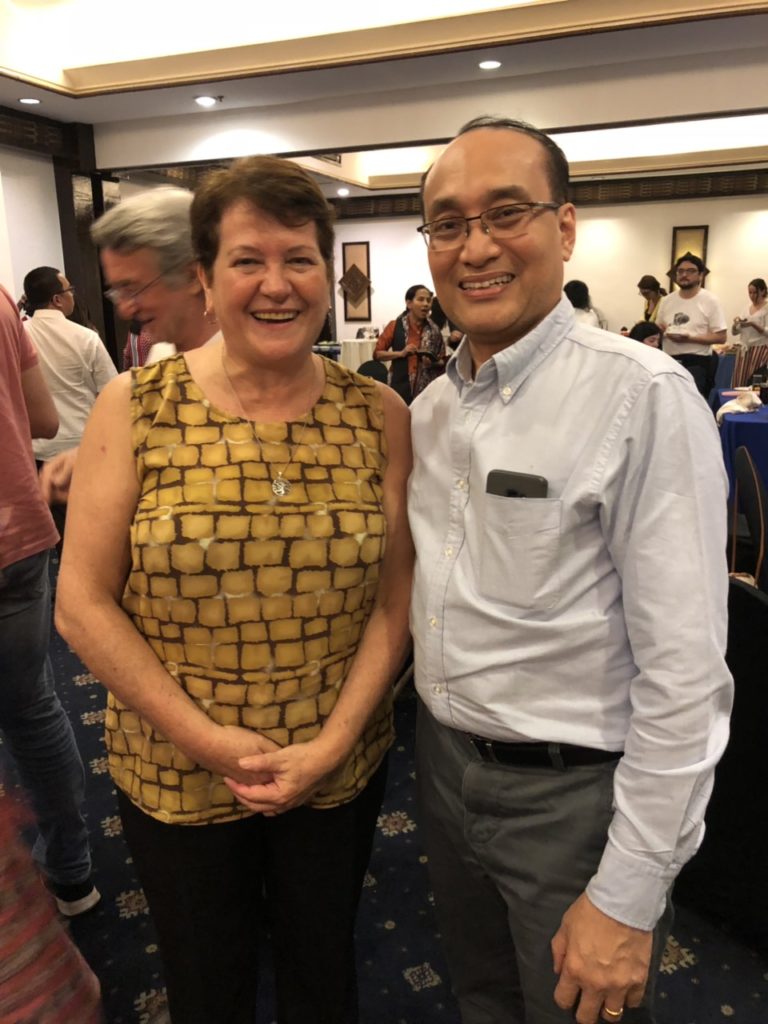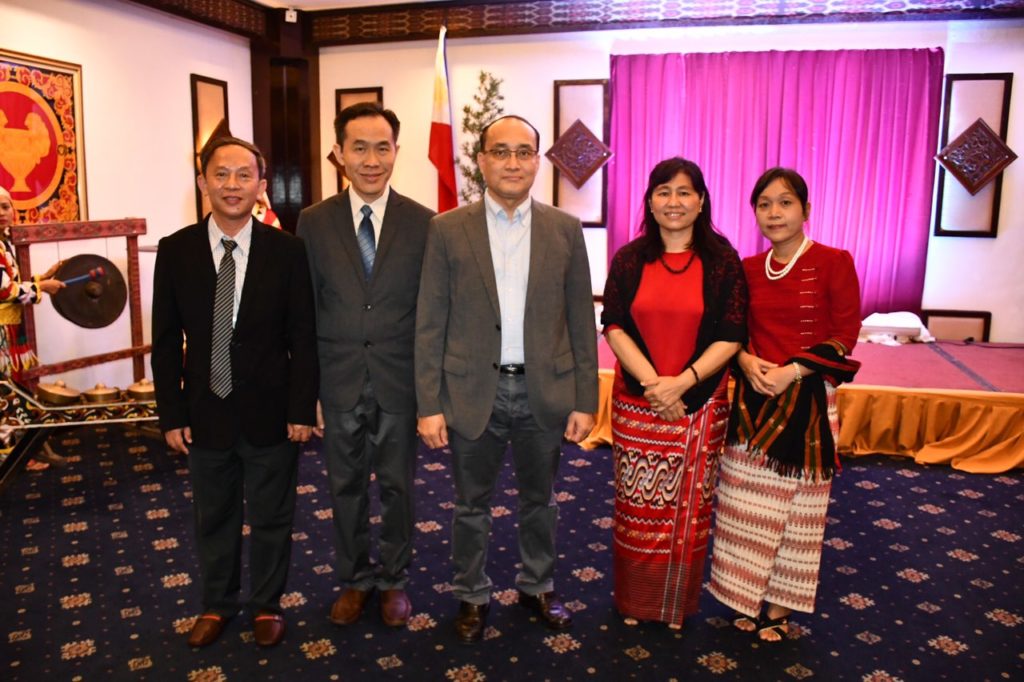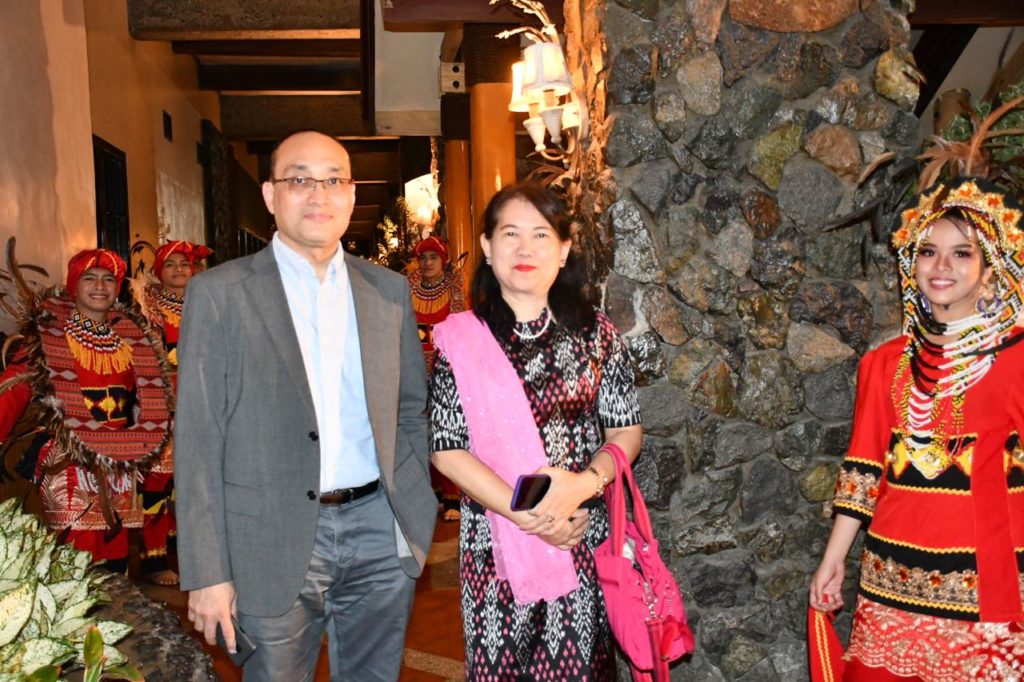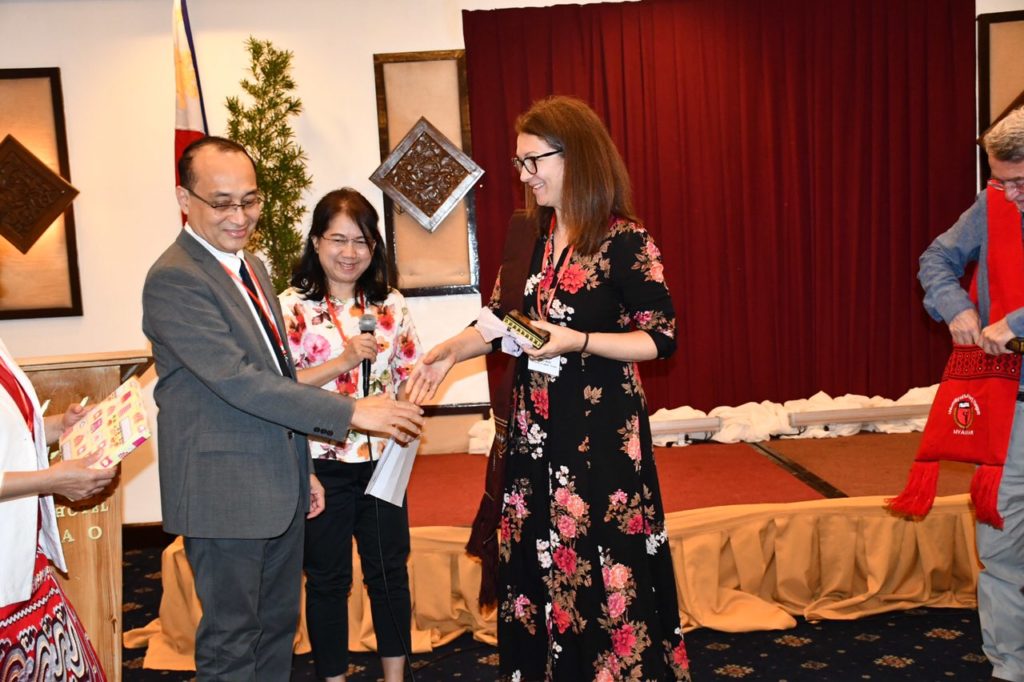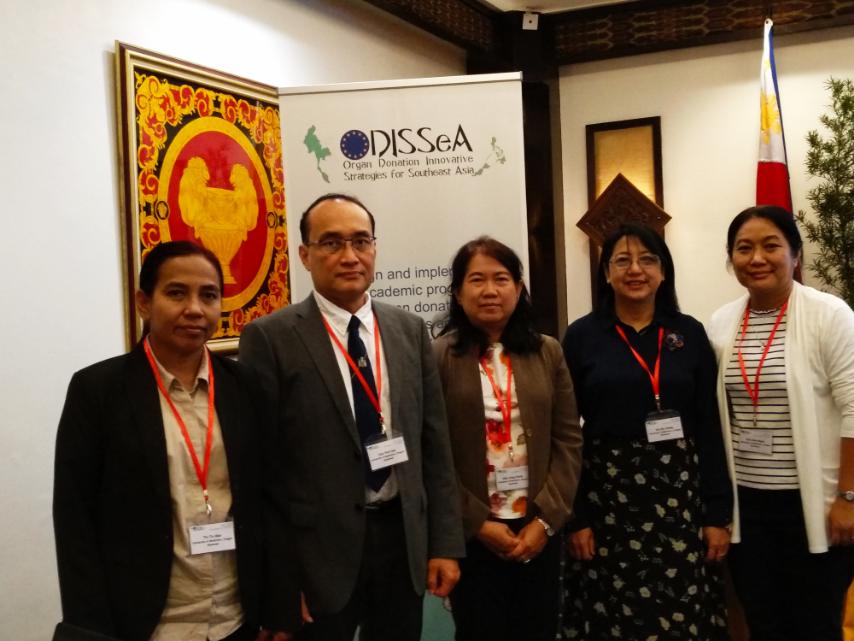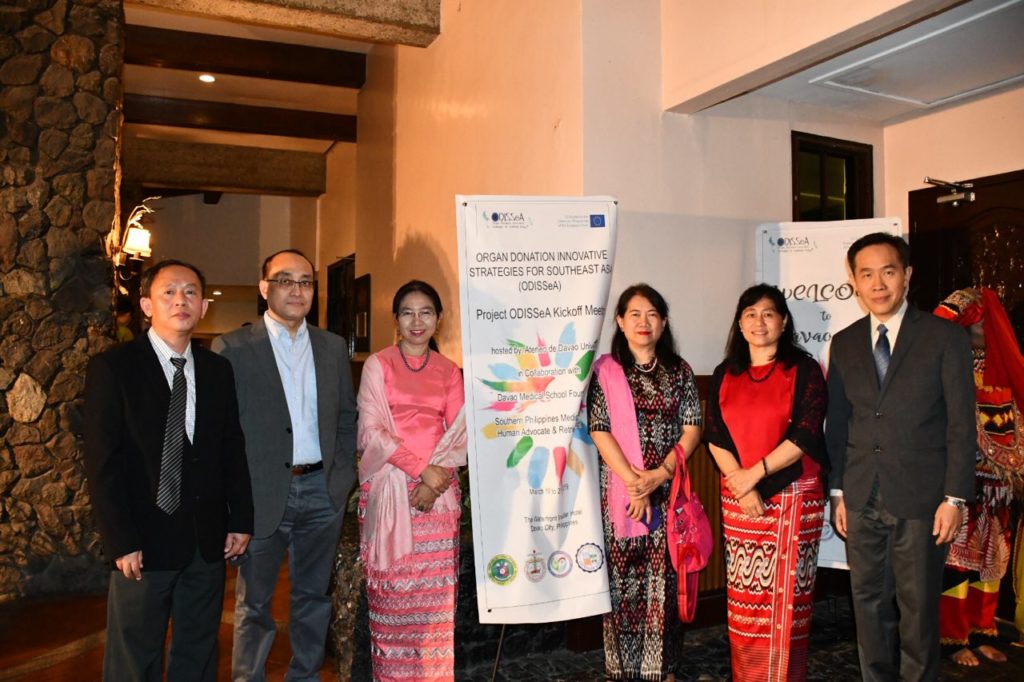ODISSeA-Yangon Project
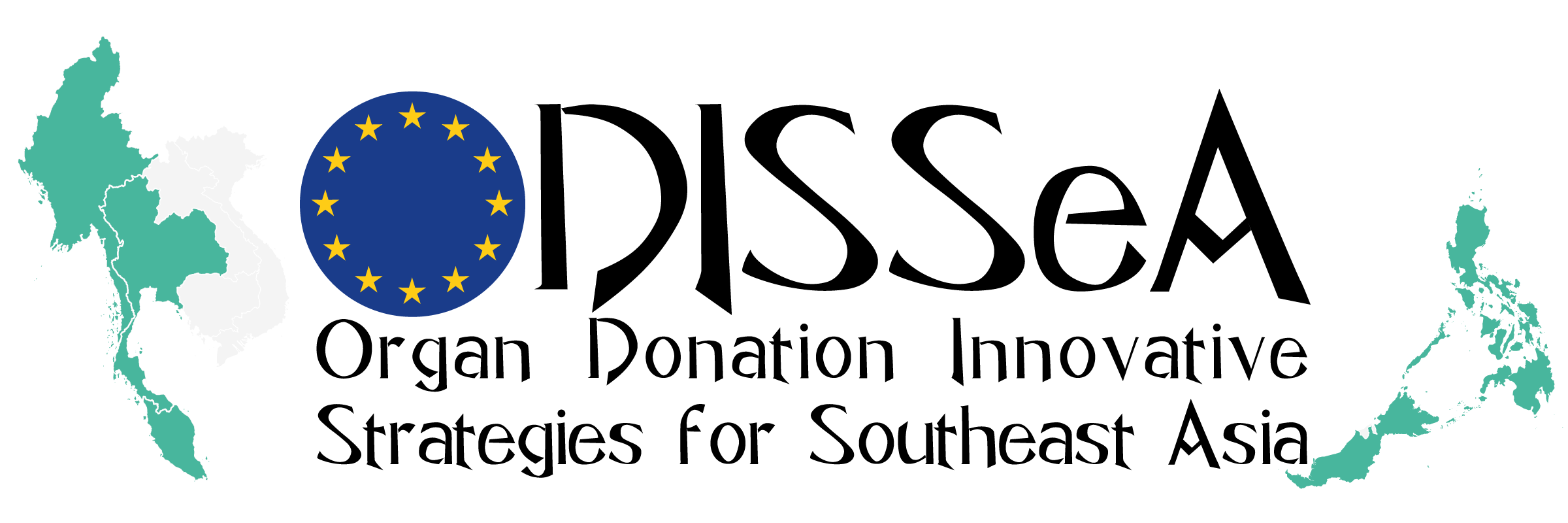

University of Medicine 1, Yangon is one of the partner medical institutions on the ODISSeA project which is part of the Erasmus+ "Capacity Building in the field of Higher Education (CHBE)". The main aim is to build a specialized academic program on organ donation for healthcare professional in 8 universities in Malaysia, Myanmar, Philippines and Thailand. From the European side, the University of barcelona is the main coordinator, leader and organizer of the project, alongside the University of Bologna, the University of Zagreb School of Medicine, DTI Foundation and Dinamia S. Coop.
About the course details, click below.
Postgraduate Certificate Course in Organ Donation and Transplantation
Introduction
ODISSeA - Organ Donation Innovative Strategies Yangon is an Erasmus+ project funded by the European Commission under the program “Erasmus+ Capacity Building in Higher Education”. The main objective is to design and implement an academic postgraduate program on organ donation in 8 universities from Malaysia, Myanmar, Philippines and Thailand, in accordance with the European Space for Higher Education guidelines. From the European side, the University of Barcelona and DTI, Barcelona, Spain, are the leaders and organizers of the project, together with the University of Bologna, Italy, and University of Zagreb Medical University, Croatia.
The origin of the project comes from the need for a specialized training program that builds adequate knowledge, skills and attitude in organ donation to improve the number of well-trained specialists, coordinate the organ donation process, and delivery of care to patients with end-organ failure, identified among the SeA partner countries: Malaysia, Myanmar, Philippines and Thailand. The postgraduate academic program to be developed and implemented will provide a common framework where Universities from 3 European countries and 8 Universities from Malaysia, Myanmar, Philippines and Thailand collaborate to develop a student-centered lifelong learning strategy corresponding to highly specialized knowledge in organ donation, with specific problem-solving skills and the responsibility of managing and transforming organ donation through strategic approaches. Upon successful completion, an accomplishment diploma or certificate validated and accredited by SEA universities will be issued (750 hours or 30 ECTS).
List of Participants
| 1 | Dr. Yee Yee Myint | Junior Consultant | Dept of Nephrology | 500 Bedded Yangon Specialty Hospital |
| 2 | Dr. Yin Yin Mon | Junior Consultant | Dept of Nephrology | 500 Bedded Yangon Specialty Hospital |
| 3 | Dr. Mya Htwe Nge | Consultant | Dept of Nephrology | 500 Bedded Yangon Specialty Hospital |
| 4 | Dr. Phyo Si Bo | Physician | Dept of Emergency Medicine | 1000 Bedded General Hospital, Naypyidaw |
| 5 | Dr. Myat Su Mon | Assistant Lecturer | Dept of Emergency Medicine | Yangon General Hospital |
| 6 | Dr. Naw Alar Khine | Specialist Assistant Surgeon | Dept of Emergency Medicine | Yangon General Hospital |
| 7 | Dr.Than Htut Zaw | Lecturer | Dept of Forensic Medicine | University of Medicine 1 |
| 8 | Dr. Yan Htoo Aung | Associate Professor | Dept of Forensic Medicine | University of Medicine 1 |
| 9 | Dr. Wai Yan Soe San | Assistant Lecturer | Dept of Forensic Medicine | University of Medicine 1 |
| 10 | Dr. Ei Ei Han | Consultant | Dept of Anaesthesia | Yangon General Hospital |
| 11 | Dr.Khin Cho Thae Win | Consultant | Dept of Anaesthesia | Yangon General Hospital |
| 12 | Dr. Win Win Mar | Associate Professor | Dept of Anaesthesia | University of Medicine 1 |
| 13 | Dr. Naing Naing Lin | Senior Consultant | Dept of Anaesthesia | Yangon General Hospital |
| 14 | Dr. Nay Myo Htun | Consultant | Dept of Anaesthesia | Yangon General Hospital |
| 15 | Dr. Thet New Oo | Senior Consultant | Dept of Hepatology | 500 Bedded Yangon Specialty Hospital |
| 16 | Dr. May Kyi Kyaw | Senior Consultant | Dept of Hepatology | 500 Bedded Yangon Specialty Hospital |
| 17 | Dr. Aung Ko Ko Kyaw | Consultant | Dept of Hepatology | 500 Bedded Yangon Specialty Hospital |
| 18 | Dr. Nyi Nyi Swe | Professor | Dept of Hepatobiliary surgery | 500 Bedded Yangon Specialty Hospital |
| 19 | Dr. Min Htin | Associate Professor | Dept of Hepatobiliary surgery | 500 Bedded Yangon Specialty Hospital |
| 20 | Dr. Lwin Lwin Naing | Lecturer | Dept of Hepatobiliary surgery | 500 Bedded Yangon Specialty Hospital |
| 21 | Dr. San Oo | Professor/Senior Consultant | Dept of Neurology | Yangon General Hospital |
| 22 | Dr. Ohmar | Associate Professor | Dept of Neurology | Yangon General Hospital |
| 23 | Dr. Moe Zaw Myint | Consultant Physician | Dept of Neurology | Yangon General Hospital |
| 24 | Dr. Thiha San | Junior Consultant | Dept of Urology | 500 Bedded Yangon Specialty Hospital |
| 25 | Dr. Myo Min Htun | Consultant Surgeon | Dept of Urology | 500 Bedded Yangon Specialty Hospital |
| 26 | Dr. Shein Lin Oo | Assistant Lecturer | Dept of Urology | 500 Bedded Yangon Specialty Hospital |
| 27 | Dr Win Min Paing | Junior Consultant Surgeon | Dept of Cardiovascular Unit | Yangon General Hospital |
| 28 | Dr Linn Thaung Zin | Senior Registrar/Surgeon | Dept of Cardiovascular Unit | Yangon General Hospital |
| 29 | Dr Shwe Pyi Kyaw | Specialist Assistant Surgeon | Dept of Cardiovascular Unit | Yangon General Hospital |
| 30 | Dr Myat Mon Zin Thein | Specialist Assistant Surgeon | Dept of Neurosurgery | Yangon General Hospital |
| 31 | Dr Aung Aung Kyaw | Specialist Assistant Surgeon | Dept of Neurosurgery | Yangon General Hospital |
| 32 | Dr Hein Htet Zaw | Specialist Assistant Surgeon | Deptof Neurosurgery | Yangon General Hospital |
| 33 | Dr Khin Thida Moe | Medical Superintendent | Dept of Administration | 500 Bedded Yangon Specialty Hospital |
| 34 | Dr Myint Myint Aye | Medical Superintendent | Dept of Administration | Yangon General Hospital |
| 35 | Dr Khin Khin Htwe | Deputy Medical Superintendent | Dept of Administration | Yangon General Hospital |
Steps
- The aims of the project is setting the basis of a network of highly qualified of professionals able to change practice related to donation, and thus support the establishment of sustainable and efficient organ donation systems in Myanmar along with important stakeholders such as university hospitals, transplant centres, Organ Donation Organizations, Ministries of Health.
- Analyse in-depth requirements for program accreditation. Hospital and patient data will be collected from the hospital centers related to SEA universities to compare figures before and after the implementation of the program and measure its impact on the clinical outcome. Specific educational needs on living and deceased organ donation together with evolution of perception, attitude and knowledge in organ donation will be also measured.
- Design and Develop the Postgraduate Program on Organ Donation in 8 SEA Universities. 40 future students (5 per SEA university) along with 40 future local trainers (5 per SEA university) will be identified and involved along with EU experts in the design and development of the teaching plan, scientific contents, educational resources and materials. They will work together according to the learning objectives, educational methodology, contents outlined and commonly agreed. Quality indicators will be considered carefully for each component, from course introduction to modules of instruction, interactivity, resources available, activities and assessment methods. In parallel the local future trainers will be trained through a Training for Trainers program, to ensure the sustainability of the program.
- Implement the Postgraduate Program that will enable healthcare students to be trained as specialists in organ donation. A total of 280 students (35 per SEA University) will be enrolled considering: gender equity, equitable representation of ethnic groups, minorities and vulnerable groups, healthcare staff from ICU, emergency and stroke units, good level of English, among others. They will be requested to complete successfully the training program, according to the academic calendar, under the guidance of the local trainers and with the support of the EU experts.
- Evaluate learners’ acquired knowledge through formative and summative evaluation throughout the entire program, the quality of program as well as its impact. We expect that at least 224 students (80% of total) will complete successfully the program and will be accredited by their universities.
Beneficiaries will acquire the knowledge, skills and attitude required for the development of organ donation activities in their hospitals. They will have the competences and motivation to appropriately transfer the knowledge within the HEIs and to the society with the ultimately goal of improving donation rates and increase life-saving transplants in their communities.
Objectives
Main objective: to develop and implement a postgraduate curriculum program on organ donation in 8 Universities from Malaysia, Myanmar, Philippines and Thailand to train health care professionals in clinical approach, management and dissemination strategies in the organ donation field in order to empower their professional competences and consequently enhance the donation activity in the country.
Specific objectives set in compliance with the needs identified and curriculum proposed:
Organ donation
Legal and ethical framework in organ donation:
✓ To present the state of art, legislative and regulatory aspects regarding organ donation in South-East Asia.
Deceased organ donation after brain death (DBD):
1. Donor detection and evaluation criteria:
- To enable participants to learn the essential steps and most effective ways to identify possible and potential organ donors and to enhance their referral to the Donor Transplant Coordinator.
- To provide participants with the knowledge required to conduct a global donor evaluation to ensure that the donor clinical situation will not affect the organs functionality and that there is no risk of disease transmission.
- To provide a complete picture of absolute and relative exclusion criteria for organ donation (general and organ specific).
- To widen acquaintance on how to measure and optimize donation potential and effectiveness.
2. Brain death diagnosis:
- To introduce the concepts and definitions of Brain Death (BD).
- To provide knowledge on clinical and instrumental diagnosis criteria of BD
- To understand conflict situations.
3. Donor management:
- To understand how to manage BD donors from hemodynamic, electrolyte, endocrine and ventilation point of view.
- To ensure correct maintenance of organ donors.
4. Family approach for organ donation
- To provide participants with the methodology and communication skills required to break bad news.
- To understand how to make the request for organ donation and deal with refusals.
- To learn how to assess biological risk for transplantation during the interview with relatives.
5. Organ recovery, preservation techniques and allocation
- To provide participants with appropriate competences on the multi-recovery process and organ preservation.
- To provide participants with appropriate competences on the multi-recovery process and organ preservation.
- To understand general allocation criteria.
Deceased organ donation after circulatory death (DCD)
1. Uncontrolled DCD (uDCD)
- Define the inclusion and exclusion criteria for uDCD.
- Describe the out-of-hospital and in-hospital procedures.
- Learn how to perform determination of death by circulatory.
- Available organ preservation techniques.
- Outcomes from uDCD organ transplants.
2. Controlled DCD (cDCD)
- Define the inclusion and exclusion criteria for cDCD.
- Describe the withdrawal of life-sustaining treatment (WLST) and cDCD preservation/recovery procedures.
- Learn how to perform determination of death by circulatory criteria.
- Outcomes from cDCD organ transplants.
Living donation
- To facilitate participants with update information on living donation as a therapeutic alternative.
- To consider ethical considerations and international recommendations in living donation.
- To enable participants to learn how to evaluate a living donor.
Project Period: 2019-2020
Countries: 7
Institutions: 14
Competencies
Upon completing the training, participants will be able to:
Organ donation
- Understand the legislative and regulatory aspects regarding organ donation.
- Demonstrate knowledge of different types of organs that could be obtained.
- Handle efficiently the organizational aspects to enhance the detection of potential donors.
- Demonstrate knowledge the death causes most commonly related to donation.
- Assess a hospital/unit donation potentiality.
- Understand the conditions that donors must accomplish.
- valuate biological risk factors.
- Handle efficiently laboratory screening tests and medical record studies.
- Demonstrate appropriate knowledge of absolute and relative contraindications
- for organ donation.
- Foresee the viability of organs according to the donor
- Identify and avoid transmission of infectious, malignant neoplasm and other
- diseases (intoxications and inherited diseases) using strict scientific criteria.
- Demonstrate knowledge on the essential characteristics of BD.
- Understand the clinical neurological criteria to diagnose BD.
- Identify the main findings when using diagnostic instrumental techniques (bioelectrical tests and cerebral flow studies).
- Understand the special situations that make BD diagnosis difficult.
- Understand the pathophysiological changes occurred in brain death situation
- Identify the clinical signs and symptoms of the pathophisiological changes due to BD and has the knowledge of which of them have the greatest repercussions in donor maintenance.
- Understand the main goals (especially, haemodynamic and hydroelectrolitic) in donor maintenance.
- Manage the interview techniques to obtain family consent for organ donation.
- Plan and follow the organized sequences of the interview with potential donor relatives.
- Identify the opinion of the deceased person with respect to organ donation for transplant throughout the interview.
- Formulate adequately the donation/arguments of support to the organ donor family.
- Facilitate positive arguments to influence family acceptance to donation.
- Summarize reasons of denial and develop strategies to reverse them.
- Understand organ procurement techniques.
- Demonstrate knowledge of the different surgical techniques for organ retrieval: classical technique, “in bloc” technique.
- Plan and follow the main surgical facts of a multi-organ procurement technique.
- Understand the main facts that the transplant coordinator has to consider when organizing a multi-organ procurement.
- Assess the advantages and disadvantages of one unique recovery team versus one recovery team per organ.
- Demonstrate a good understanding of DCD, uncontrolled and controlled.
- Understand living donation as a therapeutic alternative, the ethical considerations and international recommendations in living donation.
- Conduct a living donor evaluation.
Cross – Curricular Competencies
- Be able to use ICT (Information and communications technology) required to mobilize the variety of virtual resources available and act effectively during the online training course.
- Identify skills and self-awareness of their own learning process.
- Be able to take responsibilities of their own learning.
- Demonstrate the ability to work independently on a selected topic.
- Be able to undertake techniques for active participation.
- Be able to participate actively to boost knowledge building and critical thinking.
- Demonstrate the ability to acquire, synthesize and use data from different sources.
- Demonstrate online communication skills for collaborative knowledge building.
- Be able to undertake collaborative relationships with experts and peers by participating actively in the virtual environment.
- Manage effectively available materials and resources, media and technology.
Eligibility
Participants should be junior professionals about to join the course. Eligibility does not discriminate age, gender, race, religion but the judgement of the Ministry of Health and Sports as well as academic board consider appropriate distribution of trainees among the following areas in which respective applicant must have adequate experience
- Intensive care unit (ICU)
- Emergency ward
- Post-operative care
- Neuro-critical care
- Anesthesiology
- Organ Donor Coordination
- Transplant surgeons
1 Graduate Program
40 Trained Faculty
280 Trained Healthcare Professionals
Activities
Local Seminar 1
Introduction to Organ Donation (29th Jan 2020)
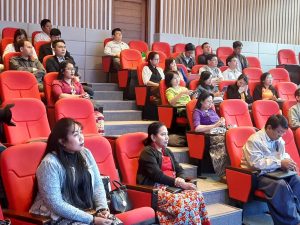
ODISSeA-Yangon Project Local Seminar 1 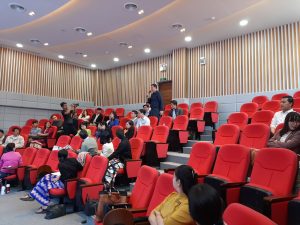
ODISSeA-Yangon Project Local Seminar 1 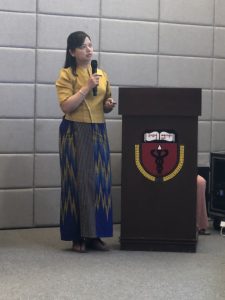
Dr. Khin Khin Htwe 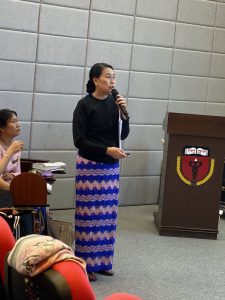
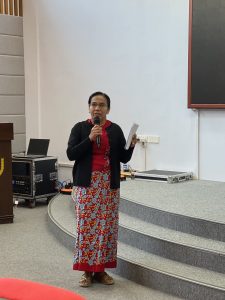
Prof. Tin Tin Mar 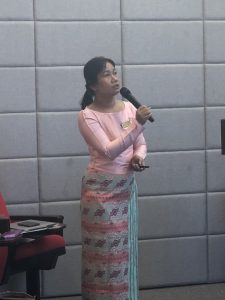
Dr. Wah Wah Wan Maung 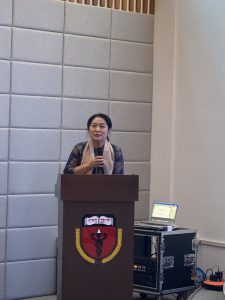
Prof. Khin Mar Myint 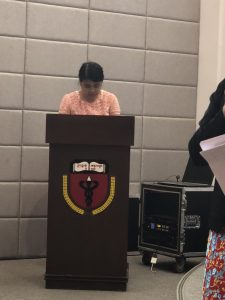
Dr. Myat Sandar Aung 
ODISSeA-Yangon Project Local Seminar 1

